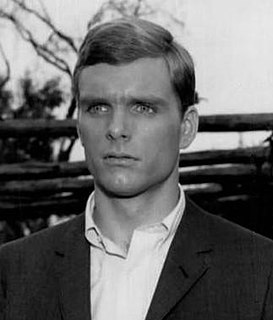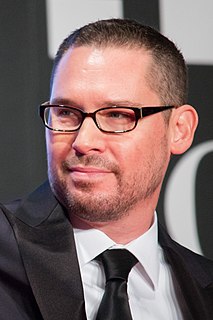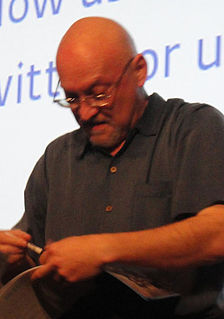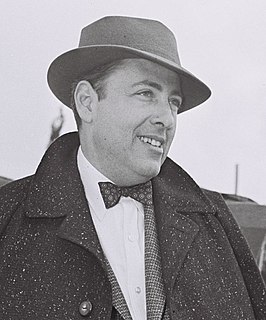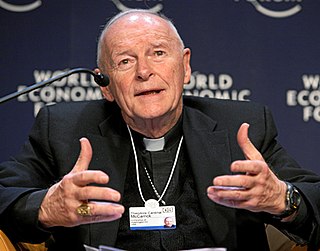A Quote by Keir Dullea
Kubrick never explained the ending to us, or what his intentions were. He didn't intend for it to be a predictable film.
Quote Topics
Related Quotes
I'm growing up in Detroit, Michigan, both of my parents were gun owners, and that they taught us how to safely and carefully utilize them, because we had businesses, and they showed us out of a sense of protection. But that was something that was used to never use a gun unless you intend - never play with a gun unless you use it to intend - intend to use it. But it was for protection only.
If Kubrick had lived to see the opening of his final film, he obviously would have been disappointed by the hostile reactions. But I'm sure that in the end he would have taken it with a grain of salt and moved on. That's the lot of all true visionaries, who don't see the use of working in the same vein as everyone else. Artists like Kubrick have minds expansive and dynamic enough to picture the world in motion, to comprehend not just where its been, but where it's going.
Let us fill a cup and drink to that most noble, ridiculous, laughable, sublime figure in our lives... The Young Man Who Was. Let us drink to his dreams, for they were rainbow-colored; to his appetites, for they were strong; to his blunders, for they were huge; to his pains for they were sharp; to his time for it was brief; and to his end, for it was to become one of us.
The Islamists started this war. They explained to us as clearly as General Giap and Ho Chi Minh explained to us why they were fighting us, and we have ignored it. Mrs. Clinton has ignored it, Bill Clinton, George Bush, Barack Obama. The idea that they're attacking us because of our culture is insane. We are now waging a war against them culturally. We're trying to impose democracy, women's rights, parliamentary systems on a people who don't want it. They're going to fight that.
If it were not for the Eucharist, if it were not for this marvelous manifestation of God's love, if it were not for this opportunity to place ourselves in the very real presence of God, if it were not for the sacrament that reminds us of His love, His suffering and His triumph, which indeed perpetuates for us His saving sacrifice on the cross, I am sure that I could never face the challenges of my life, my own weakness and sinfulness and my own need to reach out to the Living God.
October knew, of course, that the action of turning a page, of ending a chapter or of shutting a book, did not end a tale. Having admitted that, he would also avow that happy endings were never difficult to find: "It is simply a matter," he explained to April, "of finding a sunny place in a garden, where the light is golden and the grass is soft; somewhere to rest, to stop reading, and to be content.
